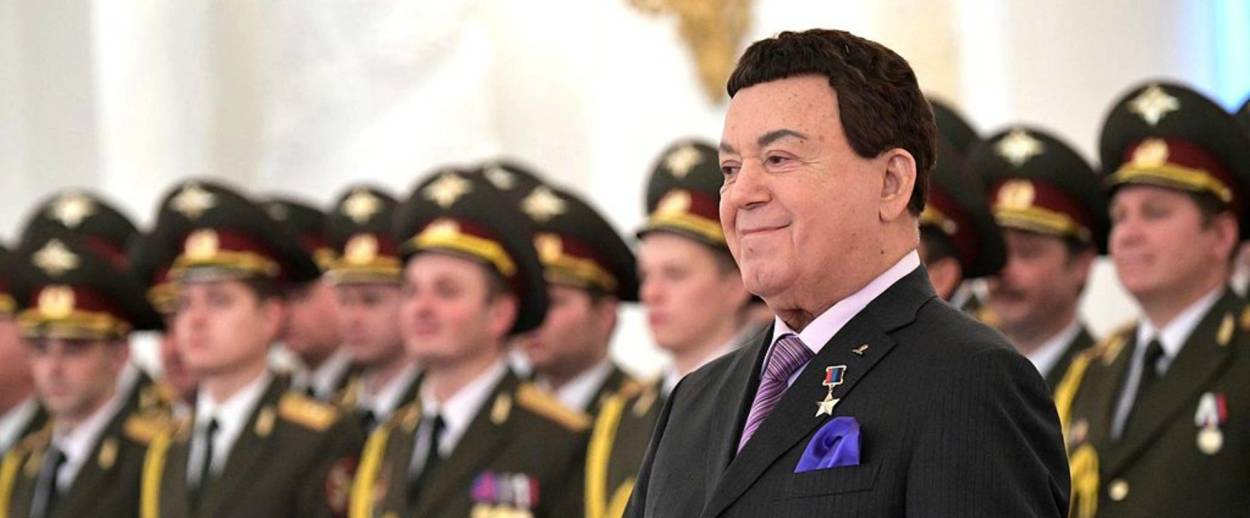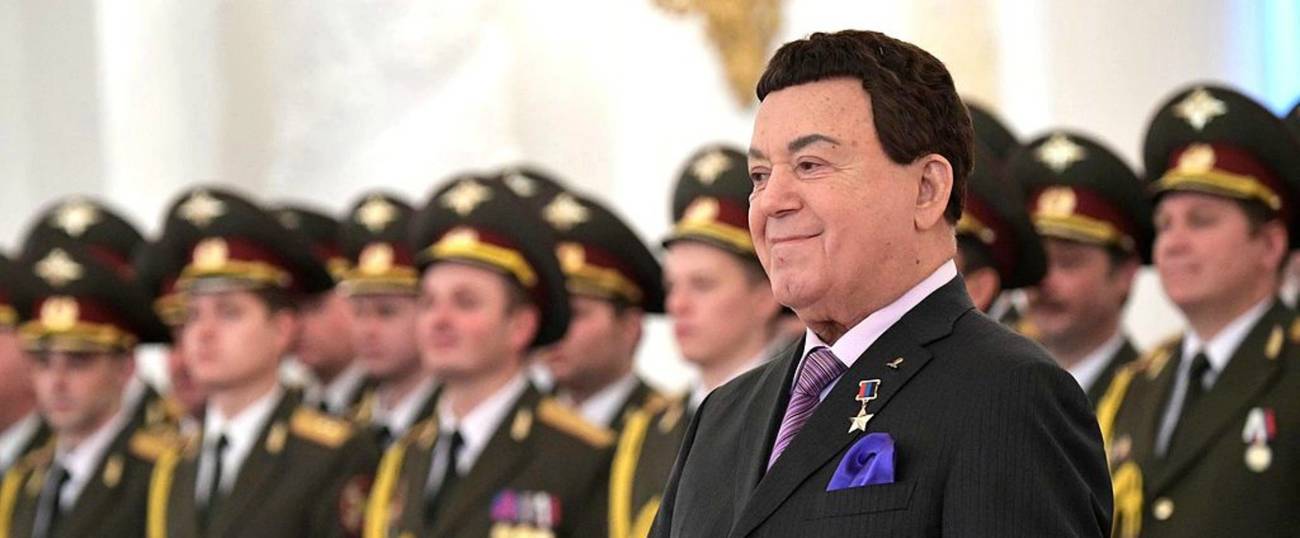Death of the Mobbed-Up Soviet Sinatra
A Communist crooner, proud Jew and pro-Putin Russian nationalist, Iosof Kobzon, the Soviet Sinatra, is dead at 81




Iosof Kobzon, sometimes also called Joseph, the English version of his name, was the Soviet Union’s maestro of World War II nostalgia and Communist kitsch. A Russian Jewish Frank Sinatra with the mob ties to show for it, he died Thursday at the age of 81.
From the conclusion of the Khrushchev era onward to the dissolution of the Soviet state, Kobzon was the most famous singer in the Soviet Union. His public performances over 60 years made him the face for a genre of traditional music played in a popular style known as “Soviet estrada.” He was continually compared to Frank Sinatra because of a shared crooner persona, style and mafia ties rather than for any musical affinities. In fact, since the mid-1990s, Kobzon had been denied entry into the United States because of business ties to the Russian mafioso Semyon Moglievich, as well as allegations of drug and arms trafficking. He would later spend 20 years serving in the Russian parliament.
He was born in Chasiv Yar in Soviet Ukraine and studied music in Moscow after serving in a dance troupe during his army service. From the time that he first sang for Stalin at the age of 9 as part of a children’s choir, to his ultrajingoistic concerts over the course of the conflict with Ukraine, Kobzan performed the official ideology regardless of the occupant of the Kremlin. With his boxy tuxedos, bravado baritone, arched eyebrows and the inimitable toupee that he wore for decades, he was a kind of one-man nomenclature of Soviet song and dance. He was awarded virtually every prize, title, accolade and privilege possible by the Soviet Union. In songs like the communist ballad “And The Battle Continues Again” he sang for the state, thundering: “And Lenin was so young! And young October surged ahead!”
With the breakout of war in his native Donbas region of Ukraine, Kobzon cemented his status as a herald of the Putin regime. In addition to becoming a fierce loyalist of Putin’s newly chauvinist Kremlin regime, he was also seemingly a personal friend of the president. In this way he became the highest profile representative of the Russian Jewish community at the sources of political power, and was continually feted by the new Russian state just as he had been by the Soviets. His voting record in the Duma as a parliamentarian was reliably pro-government and he was widely reviled by Russian liberals for his retrograde politics. He voted in favor of the law barring Americans from adopting Russian children and publicly proclaimed that “homosexuality in the estrada is a disease that needed to be fought.”
Kobzon lustily cheered on the annexation of the Crimean Peninsula from Ukraine, and was placed on some of the numerous European Union and American sanctions lists, and thus theoretically banned from crossing the border into his native Donbas region by the Ukrainian government. The ban was irrelevant as the Ukrainian state no longer had control of the border and he traveled to the self-declared Donetsk People’s Republic to perform a concert during which armed men in camouflage uniforms served as ushers in the Donetsk opera house. In 2015 it was reported that Putin had personally intervened with European authorities to have a visa issued to the ill crooner, so that he could continue his cancer treatment in a proper medical facility despite the sanctions. Critics accused him of grotesque hypocricy as the 2012 law that he had voted against had the effect of keeping some orphans from being able to travel abroad for medical treatment.
Ultimately, Kobzan ended his career as a living emblem of the Russian turn to historical nostalgia and militarization as the ideological glue holding together the Russian state. Last year, President Putin personally oversaw an imperious 80th birthday gala concert and delivered a treacly speech from the stage proclaiming Kobzon a Russian national treasure.
Still, by the time that the Soviet Union had begun teetering, Kobzon had emerged as a proud and fierce advocate of his own Jewish identity. In an interview after the collapse of the Soviet Union he explained how he had once been temporarily thrown out of the Communist Party in 1983 after an Arab delegation stormed out of an internationalist concert in the midst of his performing Jewish songs. Perhaps most memorably, it was while wearing a white tuxedo and bowtie that Kobzon performed “Hava Nagila” to the accompaniment of the Red Army chorus swaying in full dress battle uniform.
Vladislav Davidzon is Tablet’s European culture correspondent and a Ukrainian-American writer, translator, and critic. He is the Chief Editor of The Odessa Review and a Non-Resident Fellow at the Atlantic Council. He was born in Tashkent, Uzbekistan, and lives in Paris.